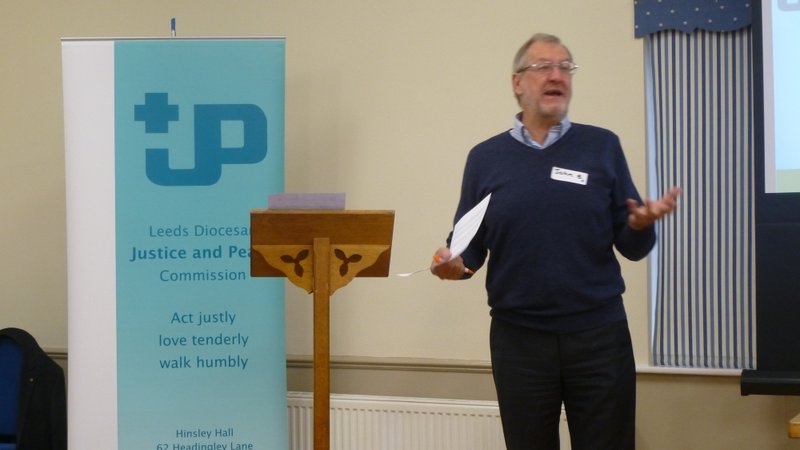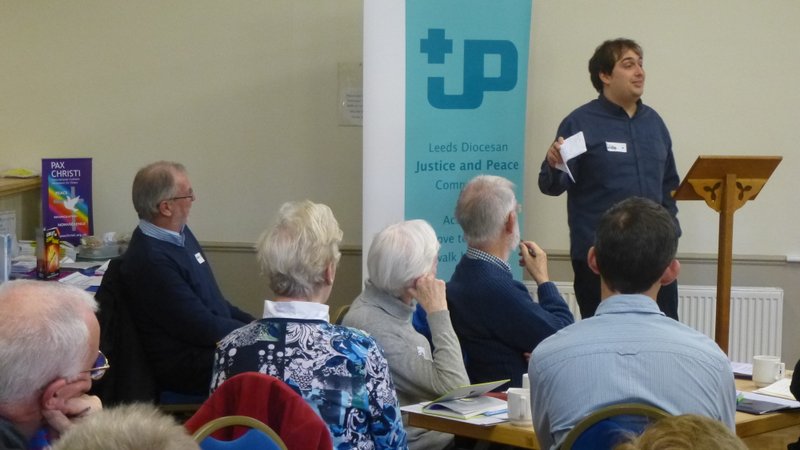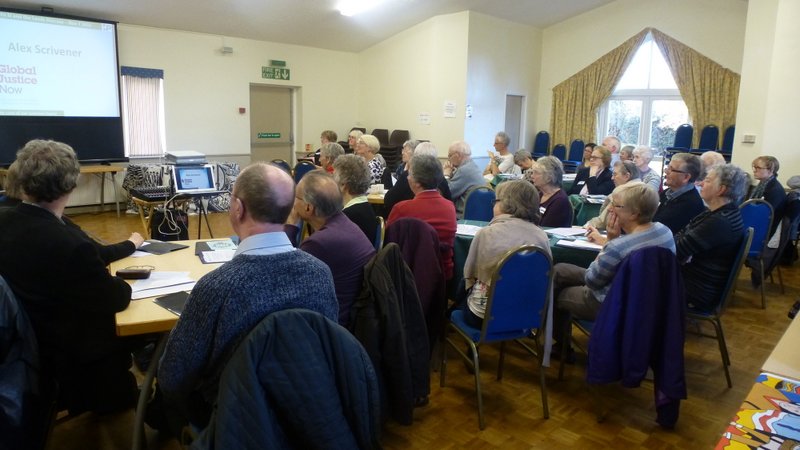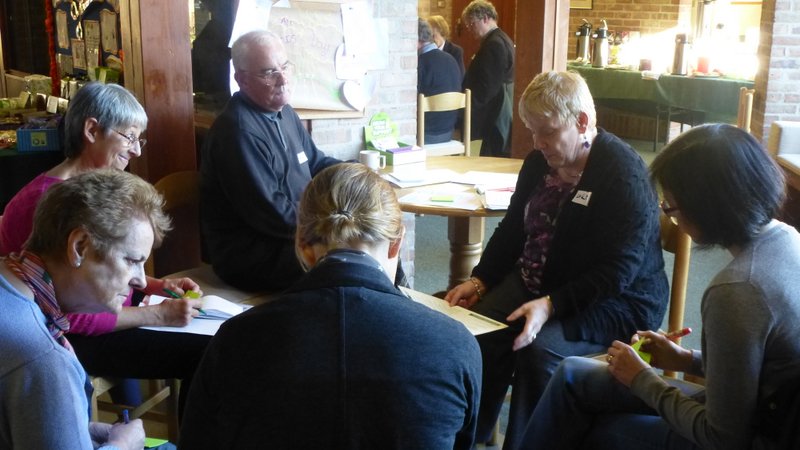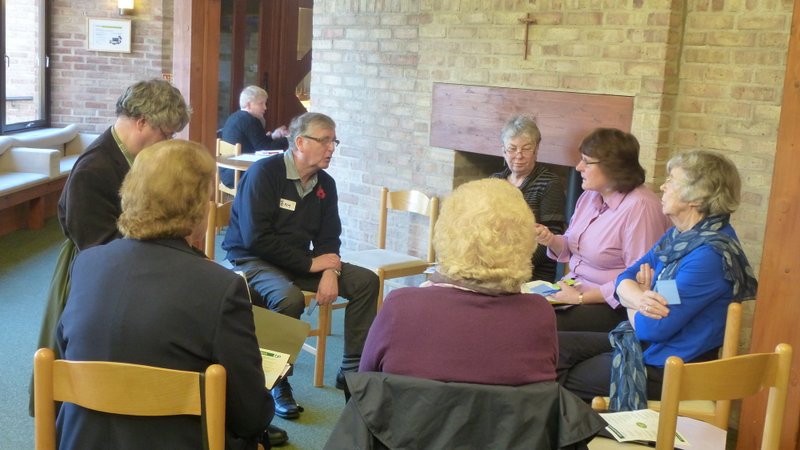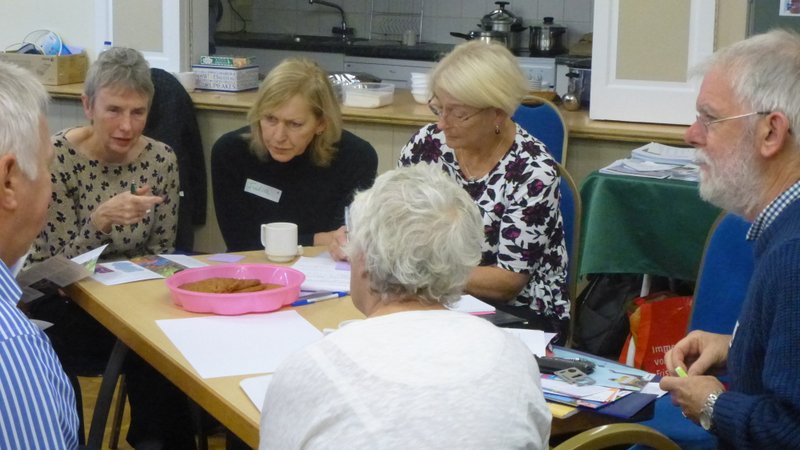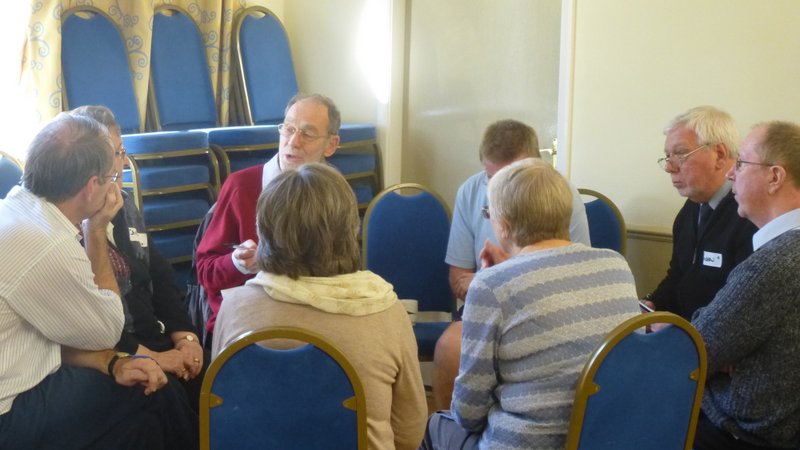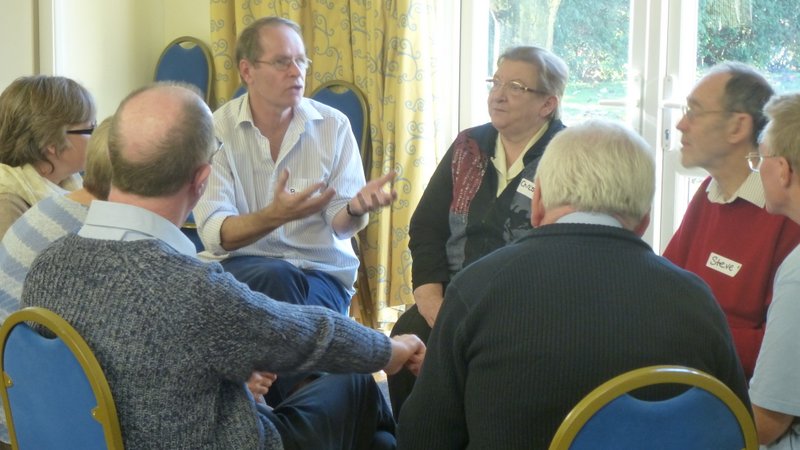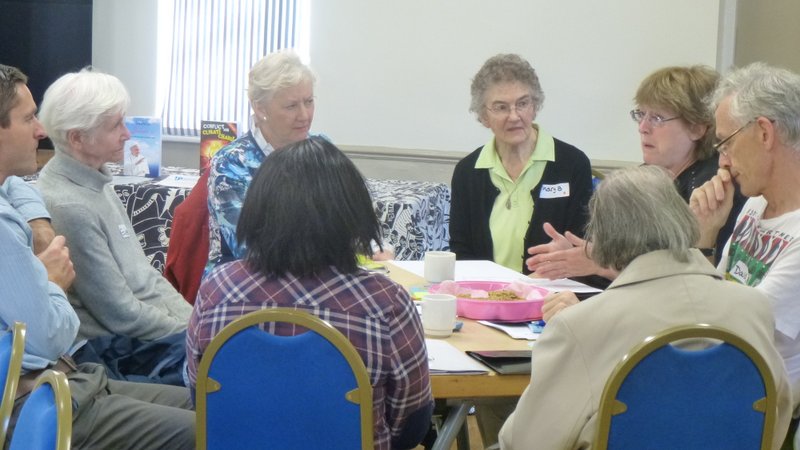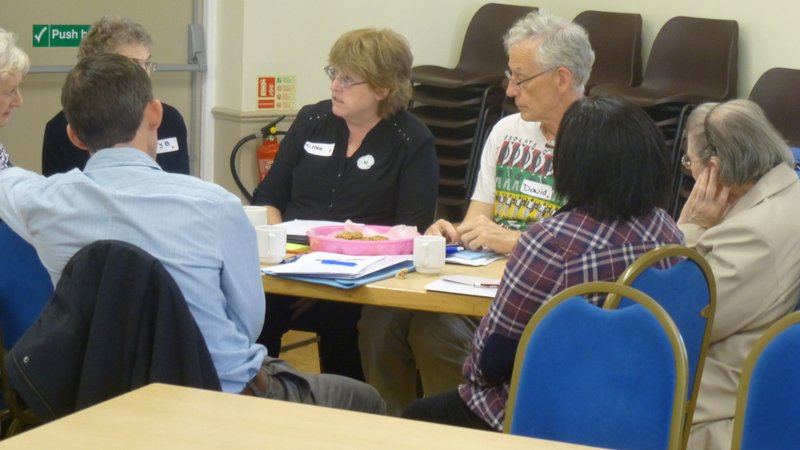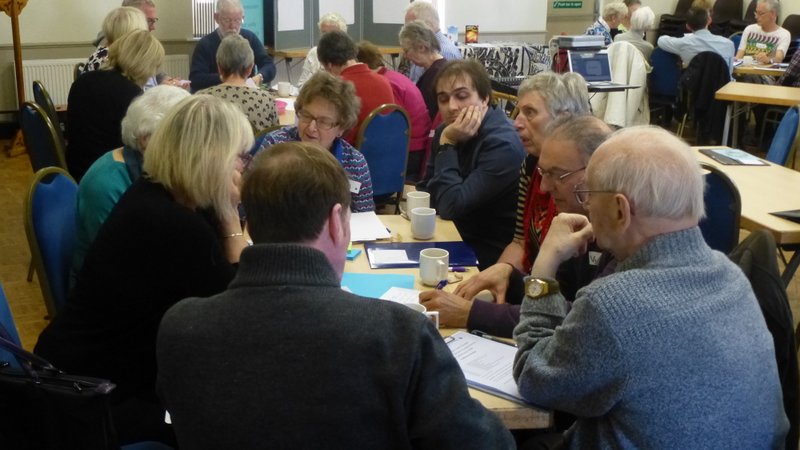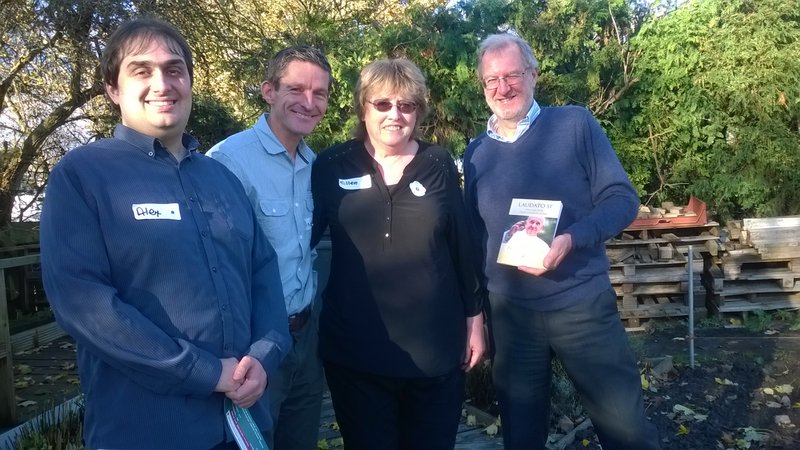After John Battle (Chair) had taken us swiftly through what the Commission had been up in the last 12 months we moved into a half-day of hearing about, discussing and committing to action about Climate Change.
Ellen Teague, catholic journalist and part of the Columban JPIC team, went through some of the key concepts in the encyclical. Part of what Andy Challinor (Professor of Climate Impacts at the University of Leeds) spoke about was the importance of the framing of the debates about Climate Change. The predominant narrative is one where technological solutions (such as carbon capture or GM crops) are the principal means of mitigating the worst effects of Climate Change and ensuring that the world has enough to eat over the next 50 years. A lot of the debate is framed around assumptions about food requirements in the next generation. Andy suggested that there is an alternative narrative to be explored by varying the key assumptions. The majority of studies relating to this assume that consumption patterns stay the same in the next generation. What if they changed? – What if people wasted less food and materially changed their diet? – This may provide a way of both mitigating some of the effects of Climate Change and improving public health at the same time. However, little work has been done to date on exploring these other options.
This idea of an alternative narrative was taken up by Alex Scrivener, from Global Justice Now. He was very pessimistic about the outcomes from the upcoming Paris Climate Change conference. Too many vested interests from the rich countries and from multinational corporations will ensure that any agreements do not deliver the radical changes that are needed, he thought. However, rather than getting totally depressed about this situation, Alex recommended that campaigning actions are needed but that the focus needs to be different. The pope’s analysis in ‘Laudato Si’ he thought was very helpful in this regard. The pope calls on people to undergo an ‘ecological conversion’. However, he does not stop at saying that we should all change our own way of living but insists that we need to act together to overcome Climate Change issues.
Alex and Ellen were critical of the role of multinational corporations and this was something that was questioned in the panel discussion that was a later feature of the conference. Some people argued that they exist and are not going away so we must lobby them to change the way they operate. However, Alex disagreed. Some multinationals, he maintained, were not interested in changing and he likened the situation to the late eighteenth century when discussions about the slave trade were ongoing. “I’m sure some people had similar feelings then: the slave traders are not going to go away so perhaps we can get them to be a bit more humane – give people double rations, or something similar”, he remarked. “In 100 years’ time there are a number of corporations that should just no longer exist”.
Both Alex and Andy commented how, in their preparation for this conference, they were surprised to discoverthat the pope’s encyclical connected their worlds of science and theology on the one hand and campaigning and personal conversion on the other.
In small group discussions, people were asked to commit to one personal action (changing something about the way they lived) and to one public action (such as lobbying their political representatives or joining in other group actions about Climate Change). Over 200 actions were logged. The conference may have raised more questions than it answered for many people – but there was a palpable desire from many attendees to explore the questions in more depth and to take more action.
Ellen Teague also has a report about the conference on the Independent Catholic News website:-

